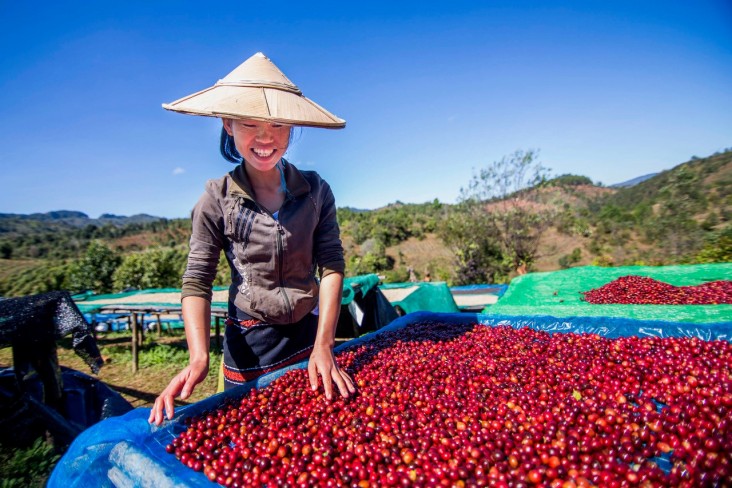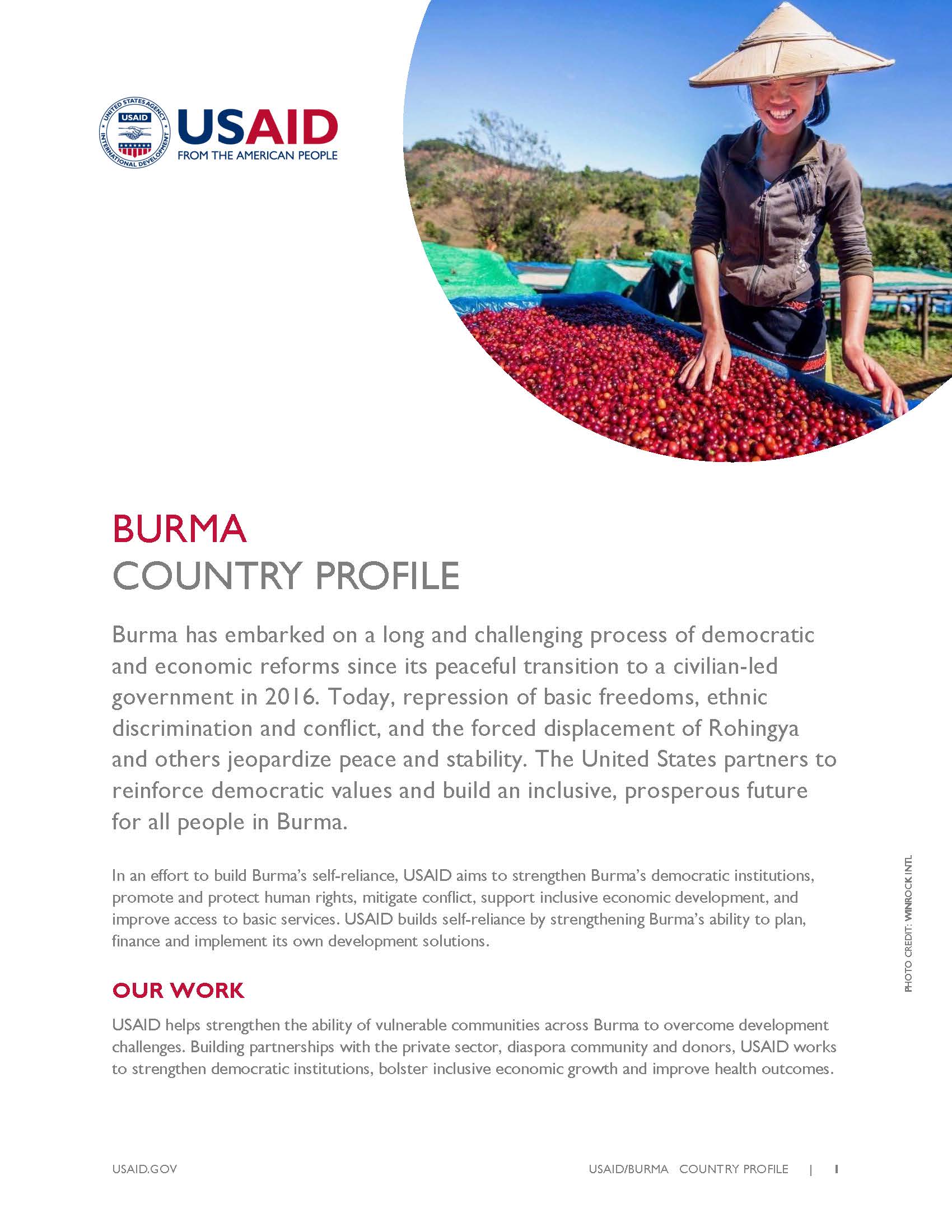Speeches Shim

Burma has embarked on a long and challenging process of democratic and economic reforms since its peaceful transition to a civilian-led government in 2016. Today, repression of basic freedoms, ethnic discrimination and conflict, and the forced displacement of Rohingya and others jeopardize peace and stability. The United States partners to reinforce democratic values and build an inclusive, prosperous future for all people in Burma.
In an effort to build Burma’s self-reliance, USAID aims to strengthen Burma’s democratic institutions, promote and protect human rights, mitigate conflict, support inclusive economic development, and improve access to basic services. USAID builds self-reliance by strengthening Burma’s ability to plan, finance and implement its own development solutions.
USAID helps strengthen the ability of vulnerable communities across Burma to overcome development challenges. Building partnerships with the private sector, diaspora community and donors, USAID works to strengthen democratic institutions, bolster inclusive economic growth and improve health outcomes.
DEMOCRACY and GOVERNANCE
Ongoing conflict threatens Burma’s future as a resilient, democratic society. USAID promotes tolerance and inclusion, and encourages citizen participation in national efforts to address intercommunal conflict, including in Rakhine State. Between 2017 and 2018, USAID funded 1,300 trainings and events to build support for peace and reconciliation and trained 94 local organizations to improve conflict resolution skills. Still, development challenges that stem from weak rule of law, limited judicial independence and repression of basic freedoms pose challenges. To help empower civil society and restore basic freedoms, USAID trained 135 independent media outlets on unbiased reporting, strengthened the capacity of 235 civil society organizations to advocate for democratic reforms, and trained 649 judges and lawyers in efficient and transparent administration of justice between 2017 and 2018.
Burma Country Profile ![]() (pdf - 344k)
(pdf - 344k)
ECONOMIC GROWTH
USAID partners with a broad range of stakeholders to promote reforms that empower new firms, address the economic drivers of conflict and advance democracy. In 2018, USAID’s investments in agriculture helped benefit more than 220,000 households and encouraged the adoption of improved technologies that led to higher incomes — including for marginalized populations. USAID also promotes economic policies that level the playing field for private enterprise and create new markets for American companies, including John Deere, Corteva and Atlas Coffee.
HEALTH
Millions of Burmese lack access to basic health care. USAID works in underserved areas to improve access to health care that reduces maternal and child mortality and the burden of infectious diseases like malaria, tuberculosis and HIV. Thanks in part to USAID’s assistance, malaria cases declined by 82 percent between 2012 and 2017.



Comment
Make a general inquiry or suggest an improvement.